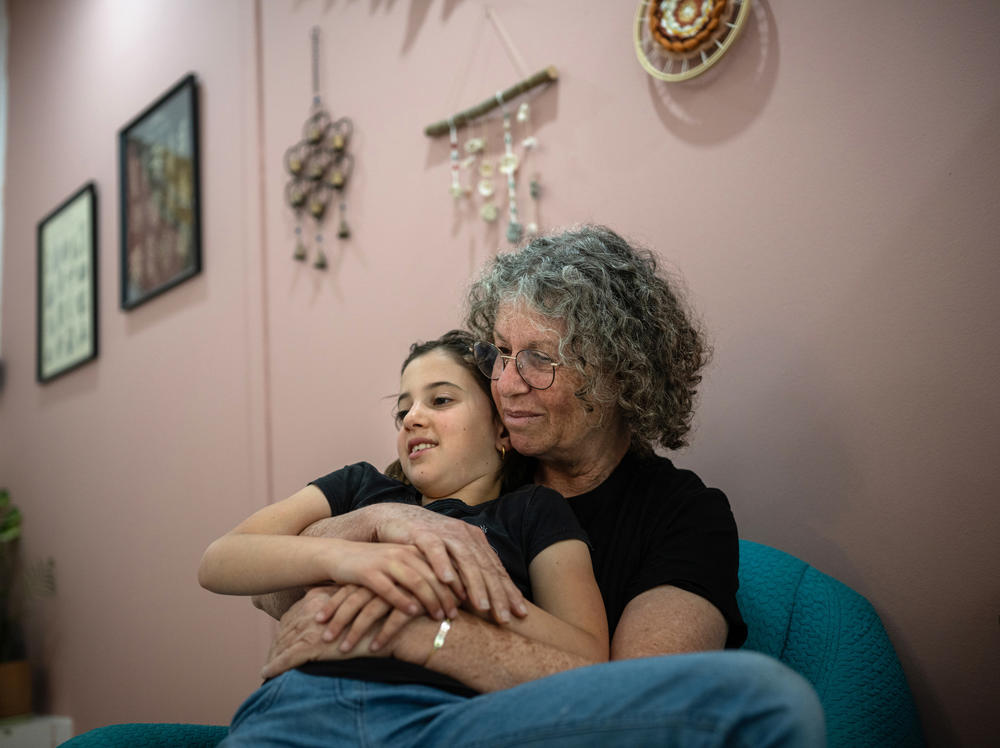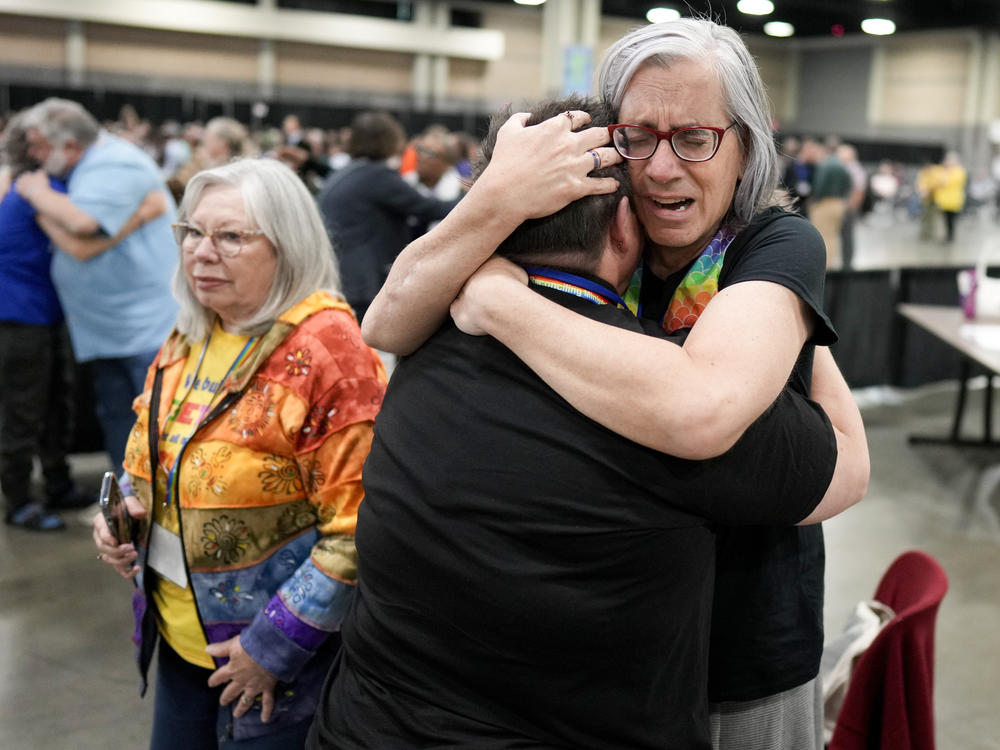Section Branding
Header Content
Police enter UCLA anti-war encampment; Arizona repeals Civil War-era abortion ban
Primary Content
Good morning. You're reading the Up First newsletter. Subscribe here to get it delivered to your inbox, and listen to the Up First podcast for all the news you need to start your day.
Today's top stories
Law enforcement officers are moving into a pro-Palestinian encampment at UCLA. Violence erupted this week on UCLA's campus when counter-protesters attempted to forcibly dismantle the tents. Journalists and protest organizers say fireworks and tear gas were used. The confrontation was a flashpoint among dozens of university protests against the war in Gaza that have broken out nationwide.
- The nationwide protests began at Columbia University, where police cleared out an encampment and occupied campus building Tuesday night. On Up First, NPR's Martin Kaste compares the police response to 1968 when Columbia students protested the Vietnam War. Kaste talked about some of these differences with Chuck Wexler, who runs the Police Executive Research Forum. Wexler thinks that in most cases, protesters are getting more careful treatment by the police. Still, injuries have been reported, and police trainer Russ Hicks says he's seen some officers lose their cool.
- The U.S. House of Representatives voted to pass an antisemitism bill Wednesday with bipartisan support. The measure would adopt the International Holocaust Remembrance Alliance's definition of antisemitism for use in the enforcement of federal anti-discrimination laws in education programs. Some Democrats voiced concerns, however, that the international group's definition could be broad enough to include protected free speech.
Arizona lawmakers have voted to repeal a Civil War-era abortion ban. Democratic Governor Katie Hobbs is expected to sign the bill into law today. But it won't go into effect until 90 days after the state's legislative session — meaning the near-total abortion ban could temporarily go into effect before the repeal takes it off the books.
- "This has really revealed a schism in the Republican party," says Ben Giles of NPR network station KJZZ in Phoenix, Ariz. Party leaders like Donald Trump have called on Republicans to fix or repeal the law. But Giles says rank-and-file Republicans in the state, like Sen. Jake Hoffman, who leads the local version of the Freedom Caucus, say the law was great.
- As abortion continues to be a key issue heading into the 2024 presidential election, a new poll shows voters are more divided by party on the issue than ever before.
Donald Trump yesterday held his first campaign rallies since the start of his criminal hush money trial in New York. In lengthy speeches in Waukesha, Wisc., and Freeland, Mich., Trump focused on what a second term would look like and the consequences if he doesn't win.
- With his limited campaign schedule, NPR's Danielle Kurtzleben says Trump is focusing on the new "Protect the Vote" program his campaign and the RNC recently rolled out. The program aims to get a "massive force of people" to watch poll workers and make sure ballots are counted correctly. Kurtzleben says the "renewed, early, organized sustained" push for this program doubles down on "the Big Lie" that Trump and the Republican party have been telling about who won the 2020 election.
How to thrive as you age
How to Thrive as You Age is a special series from NPR's Allison Aubrey about the secrets and science of longevity.
Are you an elevator person or a stairs person? Your choice could help you live longer. A new meta-analysis presented at a European Society of Cardiology conference found that people in the habit of climbing stairs had about a 39% lower likelihood of death from heart disease, compared to those who didn't climb stairs. They also had a lower risk of heart attacks and strokes.
- How many stairs are enough? One study found climbing six to ten flights a day was linked to a reduced risk of premature death. Another found climbing more than five flights a day lowered the risk of cardiovascular disease by 20%.
- The benefits can kick in quickly. One study found that four to eight weeks is all you need to start seeing an improvement in your life.
- But if you're not a regular stair climber, researchers say you should start slowly.
Picture show
Aviva Siegel, 63, was taken hostage by Hamas militants on Oct. 7, along with her husband Keith. She was released after 51 days, but he was not. Recently, Hamas released a video showing Keith alive.
See photos of Aviva and her family since her release, and read about how life has changed for them as they wait with hope for Keith's return.
Check out npr.org/mideastupdates for more coverage and analysis of the conflict.
3 things to know before you go
- The United Methodist Church, one of the largest Protestant denominations in the U.S., has voted to repeal its ban on LGBTQ+ clergy and the prohibition on its ministers from officiating at same-sex weddings.
- Scientists say the bird flu spreading among dairy cattle poses a low risk to humans. But federal health officials say they've started trying to develop a vaccine, just in case.
- If you're an adventurous eater, you may want to take advantage of the two broods of cicadas that are about to emerge from the ground. Chef Joseph Yoon shares some delectable ways to cook the bugs.
This newsletter was edited by Majd Al-Waheidi and Obed Manuel.
Bottom Content







